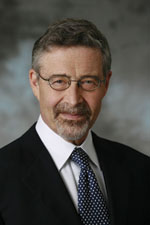 This interview originally appeared in the MIPTV 2011 issue of World Screen.
This interview originally appeared in the MIPTV 2011 issue of World Screen.For decades, Warner Bros. has been producing some of television’s biggest hits, from Cheyenne in the ’50s to the more recent The Mentalist, The Closer and The Big Bang Theory. Barry Meyer started his career at the studio in the television division in 1971 and was instrumental in making it one of the most prolific and successful television production companies of all time.
WS: What factors have contributed to Warner Bros.’s ability—year after year—to produce such a broad slate of TV shows?
MEYER: At our heart, we’re storytellers—it’s in our DNA, it’s what Warner Bros. has been doing since the 1920s. We create the stories audiences want to watch, week in and week out. We’re also smart and fortunate enough to work with the best in the business—Chuck Lorre, J.J. Abrams, Jerry Bruckheimer, Janet Tamaro, Josh Schwartz and Stephanie Savage, David Kelley—and to have an incredible TV group led by Bruce Rosenblum and Peter Roth.
We’re also strategic in how we allocate risk, which increases our opportunities for success. We produce content for multiple television platforms and spread our investments over a slate of demographic opportunities within each of these platforms. It’s this allocation of risk that mitigates the volatility inherent in our business. And in a business that has been traditionally based on deficit financing, most of our dramas are profitable from day one through our network licensing fee, international revenue and home-entertainment exploitation (digital and physical product).
WS: Some of the top names in the business, from Jerry Bruckheimer to J.J. Abrams, work with Warner Bros. to produce their shows. What does this say about WB’s relationship with the creative community?
MEYER: That statement speaks for itself. The leaders of all the creative groups at Warner Bros., including the Warner Bros. Television Group, make it a priority to be the first choice for talent. We have the brightest executives, a wealth of resources and the advantage of not being aligned with a major broadcast network, allowing us to maintain a strong independent voice in the community. We sell our shows to all networks—broadcast, cable, pay, as well as burgeoning digital platforms—and the community values our independent status and market share.
WS: What environment do writers and producers find at Warner Bros.?
MEYER: Open dialogue in working with creative people is where you start, and I think every studio would agree with that. I think what does give us a competitive advantage is the executive stability across all divisions that is a hallmark of Warner Bros., as well as our status as such a robust, diverse and independent supplier of programming.
WS: As production costs escalate, can the broadcast networks learn anything from the cable model, which produces quality shows more efficiently with smaller budgets?
MEYER: Everyone is conscious of producing shows on tight budgets—it’s a reality of doing business today. Our TV-production people work with our partners to help find the right creative solutions, whatever their financial appetite. We launched Warner Horizon Television a few years back with an eye toward creating compelling programming under a different economic model, and it’s working quite well.
WS: What is Warner Bros.’s strategy when it comes to making its movies and TV shows available online and on other digital platforms?
MEYER: Warner Bros., along with most other entertainment companies, has adapted its strategies and integrated multiple new digital delivery models that enable consumers to access content across multiple platforms and myriad devices. We seek to deliver high quality content, a wide variety of choices and portability all at reasonable price points.
WS: Which of the studio’s many successes are you most proud of?
MEYER: Certainly we’re extremely proud of Harry Potter, and I must tip my hat to my longtime partner Alan Horn, who did a magnificent job transforming J.K. Rowling’s literary genius into the most successful film franchise in history, cinematic spectacles that people have embraced beyond our wildest dreams. Then you look at the resurgence of the Batman franchise, TV megahits like Friends, Two and a Half Men, ER, The Big Bang Theory, The Mentalist—the list goes on. And certainly our aggressive and successful move into digital entertainment and video games, the exciting possibilities a newly strengthened brand like DC Entertainment offers…we feel good about the future.
ADVERTISEMENT
